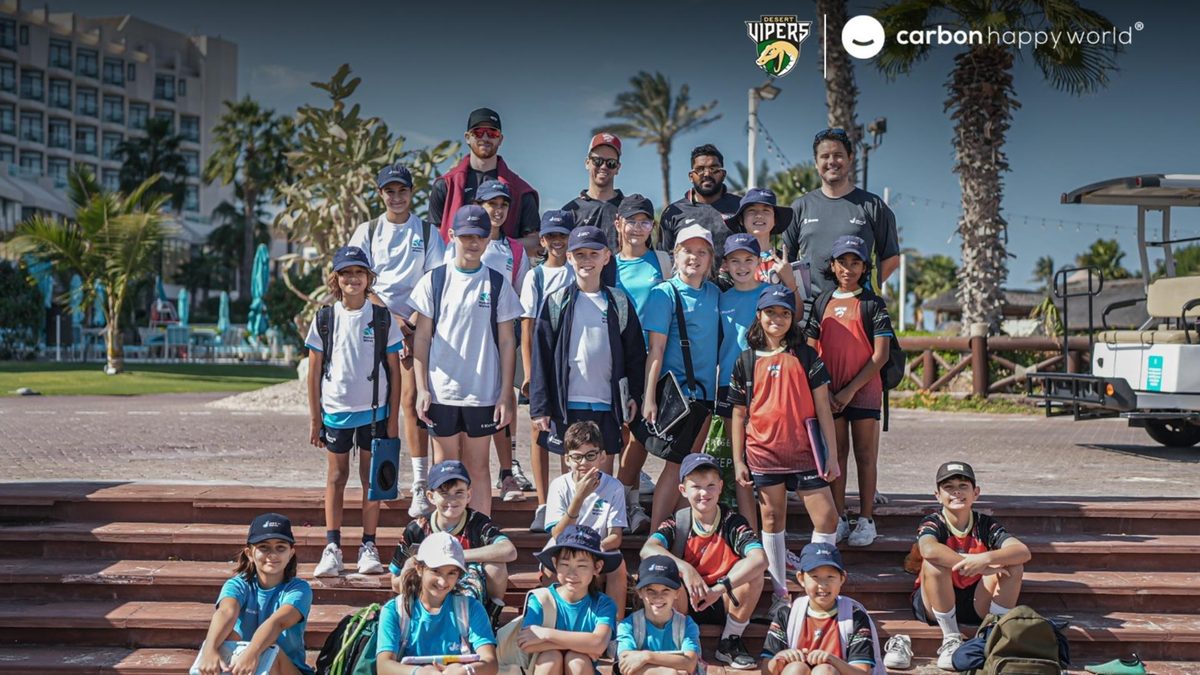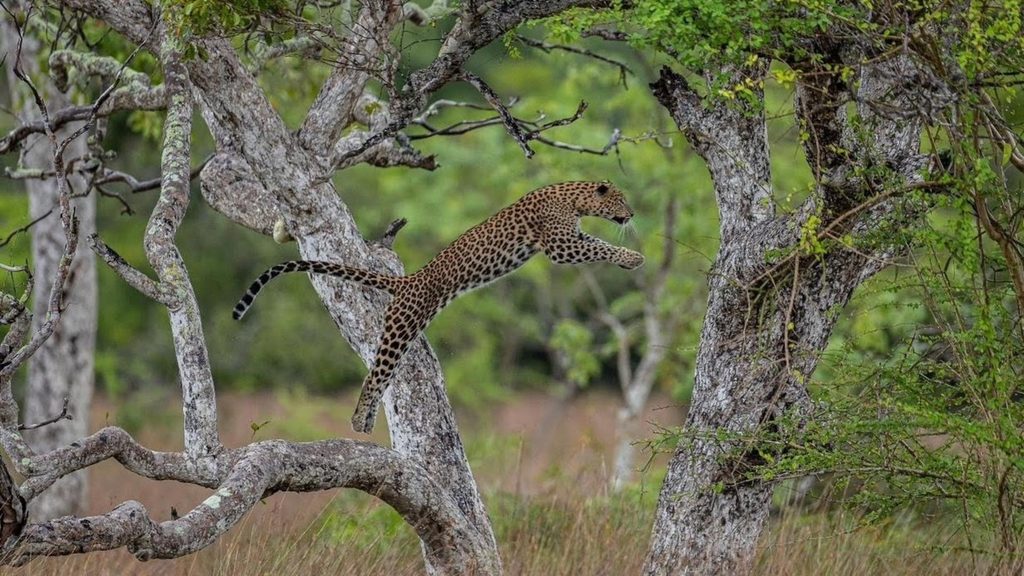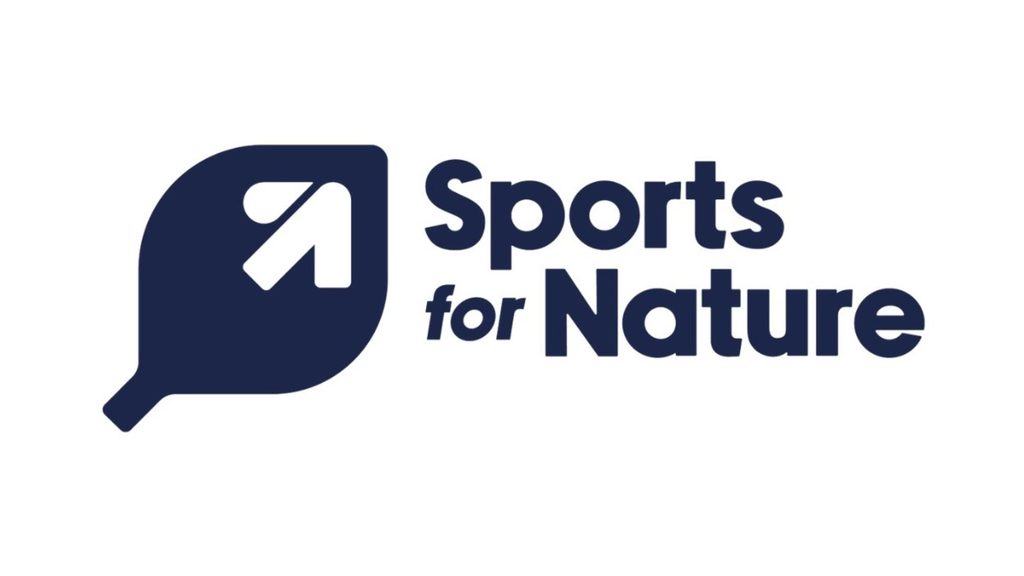
With World Nature Conservation Day on 28th July, this blog edition looks at the intersection of sports and nature, exploring why nature is important in sports, before showing some examples of how sports organisations can work to protect and promote nature. The Sustainability Spotlight features the IUCN Sports for Nature Framework – a fabulous organisation doing a tremendous amount of work to promote nature in sports.
The importance of nature in sport
When initially thinking about sports and nature, many people might say that, apart from sports which take place in ‘natural settings’ such as water and winter sports, there are few obvious links to nature for most sports. However, this is not the case: all sports are linked to nature.
Firstly, many sports depend on nature, whether for its setting (such as triathlons requiring clean waterways, or skiing requiring abundant snow cover), or to provide ‘ecosystem services’ that contribute to a sporting event. For example, trees around a football field provide shading in warm weather, providing a ‘value’ to the game. This shading would otherwise need to be provided through constructing a non-natural material, such as a sun-roof. This costs money, and so a very crude way of looking at the value of the tree is quantifying the price of what it would take to construct infrastructure which would provide the equivalent shading.
Sports also impact nature through the construction of venues and supporting infrastructure, and through their supply chains. Considering venues, construction often leads to the degradation, fragmentation, and a direct loss to natural habitats. During events themselves, noise and light pollution can disorient wildlife, interfere with animal communication and feeding patterns, and harm ecosystems. Additionally, the widespread use of chemicals like pesticides and herbicides on playing surfaces can seriously harm species. Considering supply chains, thousands of different types of materials are used in sports, all of which impact nature in their production, use phase, and disposal.
Finally, given the global permeation of sports and its cultural significance, promoting nature to sports fans through partnerships, in-stadia messaging, or activations can play a tremendous role in reversing biodiversity decline and protecting nature. Athletes and teams can use their global platform to champion biodiversity, even using native species as mascots to create a deeper connection to local conservation efforts! This engagement can lead to fans getting involved in sustainable actions, such as adopting sustainable travel habits for events. Sport also has fantastic opportunities for urban greening and habitat improvements, transforming spaces and bringing nature closer to people. Stadiums have installed green roofs and living walls, which aren’t just pretty, but actively provide habitat, help regulate temperature, retain water, and can even contribute to food production! Some new venues are built on degraded land, literally turning former industrial sites into green spaces.
How Desert Vipers are making changes for nature
Despite being a franchise team and therefore not operating any venues, Desert Vipers became the first cricket organisation in January to sign up to the IUCN Sports for Nature Framework, showing our commitment.
Our first nature activation took place at our fabulous Team Hotel, JA The Resort, where we undertook a BioBlitz with support from Nature Wave and Jebel Ali School. For those who don’t know what a BioBlitz is – it’s a race against time to find and record as many species as possible, contributing to citizen science through the iNaturalist platform. To add a little sporting drama to the event, we made it a friendly competition between students from Jebel Ali School, JA The Resort, and Desert Vipers to see who could record the most species. To the surprise of no-one, the enthusiastic and competitive students from Jebel Ali School won, but everyone played a great part in the day, with a total of 310 observations made and 97 species identified! The day finished with a wildlife talk from influencer and educator, Sahir Doshi, where he explained more about wildlife and showcased the fantastic photography of Wanindu Hasaranga. Through the BioBlitz activation, we uncovered that ‘Wani’ had a love for nature photography, capturing images of leopards from his homeland, Sri Lanka. Some of the photography wouldn’t look out of place on a David Attenborough documentary, and it was brilliant that this activation uncovered a different side to one of our players, showing how players care about our planet.
Even before Desert Vipers’ signatory to Sports for Nature, we had already started implementing initiatives to reduce our impact on nature. The most obvious of these is the partnership between Desert Vipers and Bluewater Group, where we have replaced the fridge next to the dugout full of single-use plastic bottles with a state-of-the-art water filtration unit, allowing us to save 14,400 single-use plastic bottles across a short season, and eradicate single-use plastic from our team environment. This has some benefits for our carbon footprint (see our Season 2 Carbon Footprint Report for more information), but its main benefit is to nature, as nature is negatively affected by plastic pollution, so reducing plastic pollution is one of the biggest steps we can take to protect nature! We are looking forward to continuing this partnership into Season 4, continuing to set the standard in global turf sports for hydration.
How other sports organisations are promoting and championing nature
Surrey County Cricket Club (SCCC) has partnered with Surrey Wildlife Trust (SWT) to help support the Trust’s vital mission to protect and support local wildlife. This partnership is a significant step towards integrating environmental stewardship into the world of sports. As a gold corporate member of the Trust, SCCC will leverage its platform to raise awareness among cricket fans and club members about the importance of protecting local wildlife. They will also promote SWT’s initiatives and the broader message of environmental conservation. Additionally, SWT will provide SCCC with advice and support to enhance the natural habitats within and around their cricket grounds. This will include helping to create wildlife-friendly spaces, such as planting native species and maintaining green areas. A partnership that's a real win-win for the planet!
In Formula One, Sebastian Vettel was instrumental in building specially-created insect hotels at the Suzuka Circuit in Japan, located at Turn 2. This initiative aimed to promote awareness about the importance of insects and biodiversity in general – Vettel having also promoted an insect hotel at Austria’s Red Bull Ring back in 2021.
For the 2024 Paris Olympics, the organisers undertook the mammoth task of cleaning up the River Seine to reduce sewage pollution, benefitting people and wildlife. After a $1.5 billion project, pollution levels have drastically reduced and the number of fish has increased from a low of three to now 32.

Innovating with coffee
The ‘Coffee Collective’, Carbon Happy World’s own initiative, benefits local nature and biodiversity by transforming coffee waste into a valuable resource. The project diverts coffee grounds from landfills, where they generate harmful methane and degrade healthy soil. Instead, the grounds are collected, dried, and distributed as free, nutrient-rich fertiliser to community gardens, allotments, and farms. This process directly improves soil health and prevents environmental damage caused by wet waste.
Plus, healthy soil brings numerous additional benefits. It enhances plant growth and crop yields, leading to more productive agriculture and gardens. Healthy soil also improves water retention and drainage, which can help mitigate the effects of droughts and floods. It supports a diverse ecosystem of microorganisms, fungi, and invertebrates, which are crucial for nutrient cycling and disease suppression, thereby boosting overall biodiversity. Moreover, healthy soil acts as a significant carbon sink, helping to sequester atmospheric carbon and combat climate change. The initiative is expected to capture 7,000 kg of carbon, reducing atmospheric carbon dioxide equivalent.
As well as these direct ecological benefits, the project also raises environmental awareness within local communities. We have partnered with various organisations, as ‘The Coffee Collective’ integrates environmental education into community programmes, championing a greater understanding of sustainable practices and waste reduction. This approach promotes both immediate environmental improvements and long-term ecological stewardship.
Sustainability Spotlight – Sports for Nature
This blog’s Sustainability Spotlight features the IUCN Sports for Nature. Sports for Nature is a joint initiative of the International Union for Conservation of Nature (IUCN), International Olympic Committee (IOC), United Nations Environment Programme (UNEP), the Secretariat of the Convention on Biological Diversity (CBD), and Dona Bertarelli Philanthropy. It aims to deliver transformative action for nature across sports, by 2030 and beyond, enabling sports to champion nature and contribute to its protection and restoration. It provides a game plan for sports — at all levels — to accelerate and inspire others to take action for nature. All sports organisations reading this blog should sign up today!

About Carbon Happy World
At Carbon Happy World, we're dedicated carbon accountants and ESG software consultants. We empower businesses to measure, manage, and significantly reduce carbon emissions. By providing a range of innovative solutions and insights, we help organisations achieve their carbon net zero goals and genuinely enhance their sustainability practices. As at Carbon Happy World every calculation starts a conversation.


